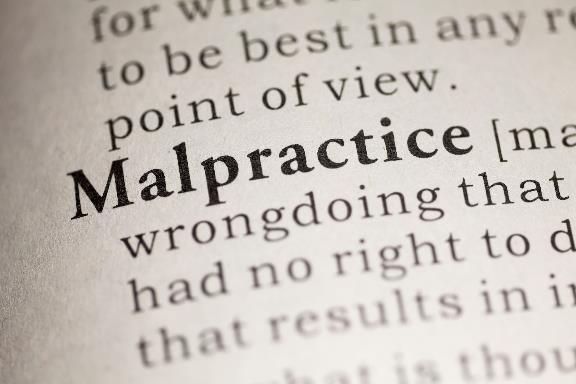
Deciding to work with a lawyer is a big deal. When you put trust (and money) into a hiring a lawyer, you may have thousands of dollars in damages, a clean criminal record, visitation rights, and more on the line. Additionally, attorneys have a legal and professional duty to do what they can to provide you with the best possible representation.
Unfortunately, lawyers make mistakes just like everyone else. Sometimes, these mistakes may constitute professional negligence.
If your attorney’s negligence caused you material harm (for example, costing you money or leading to a conviction) the state of Florida gives you the right to sue your representative for legal malpractice in order to hold them accountable for their actions and provide you with the compensation that you deserve.
Legal malpractice can be complicated to understand, however, and even harder to prove.
When Has a Lawyer Committed Malpractice?

You can’t just file a lawsuit against a former lawyer because you didn’t like the outcome of your case. In some situations, an attorney can do everything in their power and still fail to prove your innocence or get you the full compensation you were seeking.
So what constitutes legal malpractice specifically?
The following situations represent the most common types of legal malpractice cases. If your situation doesn’t quite seem to fit into any of these, it doesn’t necessarily mean you don’t have a case. The best way to know for sure is to reach out to our office.
Failure to Know or Apply the Law: Knowing the law is a pretty important duty placed upon all lawyers, whether you are dealing with criminal charges or determining fault after an auto accident. This includes knowing the changes and updates made to the law throughout the years.
One new provision to a law could make or break a case, so details are key. If your lawyer did not know the details of the law well enough and allowed your case to end unfavorably and unjustly, you may have a strong case of legal malpractice against them.
Failure to Meet Deadlines: Deadlines for specific petitions or paperwork can make or break a case. Your lawyer has the knowledge of these deadlines, experience working with them, and you paid him or her to make them. Failing to do so is a strong argument supporting negligence.
Failure to Appear for Hearings: A lawyer’s advice over the phone can only go so far. Failing to show up to court with a client is a big no-no. It can make a huge difference in a case and cost the client through the final ruling.
Inadequate Investigation or Discovery: During the discovery phase, an attorney must gather all of the relevant information, including witness testimony or financial documents that could be used in trial.
Let’s say you offered to give your lawyer an affidavit or the name of a witness that might have helped in your trial, but the lawyer refused to take it or consider it. If you can prove how this piece of evidence would have helped your case, you may be able to prove the lawyer was negligent.
Conflict of Interest: You are not the only client of your attorney. Attorneys handle multiple cases at once, but are strictly advised not to take on two clients with conflicting interests. Working against your case in favor of another client’s case is a conflict of interest.
Commingling: Attorneys who deal with business planning or financial matters may oversee money being transferred, invested, and so on. An attorney can advise a client on where assets and funds should go, but should not mix their own funds in with the client’s.
What Should You Do to Fight Legal Malpractice?

If you have discovered that your lawyer committed legal malpractice while representing you, your next step is to file a lawsuit against that lawyer. Working with your new attorney, you will need to prepare a case that can prove the following:
- The lawyer had a duty or responsibility to represent you
- The attorney breached that duty through conflict of interest, negligence, etc.
- The attorney’s actions or negligence caused a ruling or led to actions that caused financial damages
- You suffered financial losses or damages
As hesitant as you may be to put your trust in another lawyer, this is your best bet for proving legal malpractice. This form of malpractice is pretty tricky, and a lawyer with experience representing malpractice has knowledge of the laws and procedures that will help to prove where or when a lawyer breached their duty to you.
Talk to a Florida malpractice lawyer today to learn more about malpractice cases, and your options for filing a legal malpractice lawsuit.


